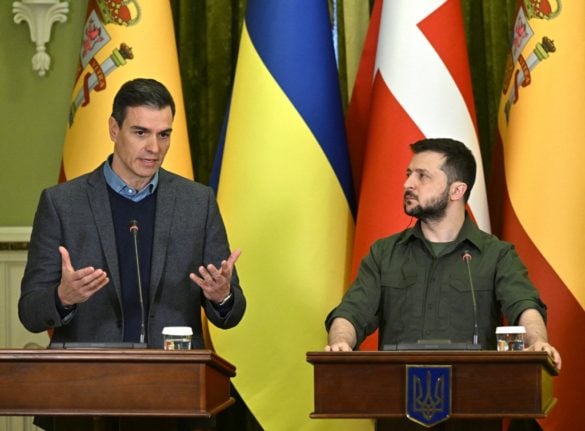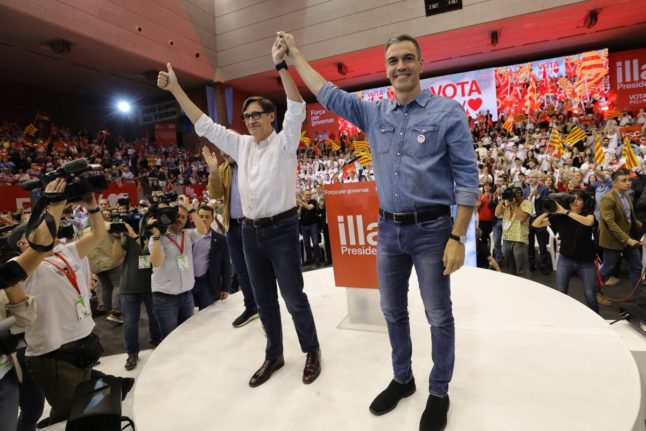Sánchez “will kick off the EU presidency on Saturday, July 1, in Ukraine… to demonstrate with his presence the unfaltering European Union support” to the country, said a statement from his office.
The announcement was made as Sánchez attended an EU summit in Brussels, in which Ukrainian President Volodymyr Zelensky, participating via videolink, confirmed the visit.
From July to the end of December, Spain will hold the EU presidency which rotates among the bloc’s 27 member nations. It takes over from Sweden.
The role puts ministers from the EU presidency country in the chair of most EU meetings, influencing the agenda and priorities of topics being decided.
Zelensky told the summit that Sánchez’s visit “says much about the importance… for our Europe and the membership candidacy of Ukraine for the EU”.
Ukraine received EU candidacy status a year ago and hopes to begin formal negotiations this year on what it needs to do to firm up its membership bid.



 Please whitelist us to continue reading.
Please whitelist us to continue reading.
Member comments